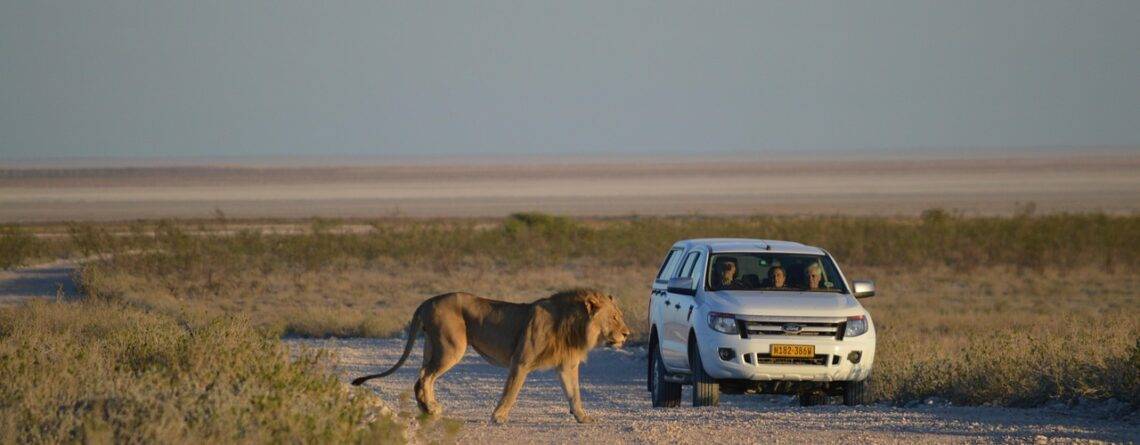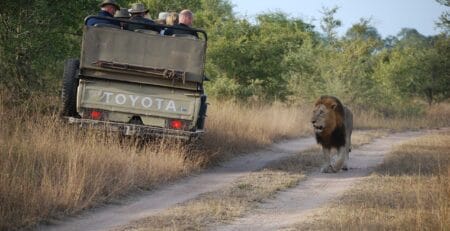Going on a safari is an incredible adventure, but it comes with its own set of rules, especially when it comes to tipping. Knowing how much to tip and who to tip can make a big difference in your experience and in the lives of those who work hard to make your trip memorable. Here’s a straightforward guide to help you navigate the tipping scene on your safari, so you can show your appreciation without any confusion. safari tips
Key Takeaways
- Tipping is a way to show appreciation for safari staff’s hard work.
- Common tips range from $15 to $20 per person per day for guides.
- Prepare cash in small denominations for easier tipping.
- Consider communal tip boxes for shared staff contributions.
- Be aware of local customs to avoid tipping mistakes.
Understanding Safari Tipping Etiquette

Cultural Significance of Tipping
Tipping on safari isn’t just about money; it’s deeply rooted in cultural norms. In many African countries, tipping is a way to show appreciation for good service, and it supplements the income of those working in the tourism industry. It’s important to remember that what might seem like a small amount to you can make a big difference in someone’s life. I’ve learned that understanding the cultural context is the first step in tipping appropriately. It’s not mandatory, but it is a very nice thing to do. safari tips
Common Practices in Different Regions
Tipping practices can vary quite a bit depending on the country you’re visiting. For example, what’s considered a standard tip in Botswana might be different from what’s expected in Tanzania or Kenya. It’s a good idea to do some research beforehand or ask your tour operator for guidance. Knowing the regional norms will help you avoid under-tipping or over-tipping, which can sometimes be awkward or even offensive. I always try to get a feel for the local customs before I even pack my bags. safari tips
When Tipping Is Expected
While tipping isn’t always mandatory, there are certain situations where it’s generally expected. This usually includes tipping your guides, trackers, and camp staff. Think of it as a way to acknowledge their hard work and dedication in making your safari experience memorable. It’s also worth noting that the level of service you receive should influence the amount you tip. If someone goes above and beyond, feel free to show your gratitude with a more generous tip.
Tipping is a personal choice, but it’s often seen as a way to support the local economy and show respect for the people who are working hard to make your safari unforgettable. It’s a small gesture that can have a big impact.
Here’s a quick guide:
- After a game drive with your guide.
- At the end of your stay at a camp or lodge.
- For exceptional service from individual staff members.
Who Should You Tip on Safari?
When I’m on safari, figuring out who to tip can feel a bit confusing. It’s not always obvious, especially since there are so many people working to make the experience great. Here’s my take on who generally gets a tip.
Guides and Trackers
Your guide is usually the most important person to tip. They’re the ones leading the game drives, sharing their knowledge, and making sure you have amazing wildlife encounters. A good tracker is also key; they find the animals! I always make sure to show my appreciation for their hard work. They often have formal qualifications.
Camp Staff and Housekeepers
Don’t forget the people working behind the scenes! The camp staff, including housekeepers, cooks, and groundskeepers, work hard to keep everything running smoothly. I usually contribute to the communal tip box, knowing it’ll be shared among them. It’s a nice way to acknowledge their efforts in making my stay comfortable. For a family of five, the recommended daily tipping is a good starting point.
Drivers and Transfer Personnel
If you have separate drivers for airport transfers or other transportation, it’s a nice gesture to tip them as well. They ensure you get to your destinations safely and on time. I usually tip based on the length and quality of the service. It’s a small way to say thanks for their help.
Tipping on safari isn’t just about money; it’s about acknowledging the hard work and dedication of the staff. Many of these individuals work long hours and rely on tips to support their families. It’s a way to show gratitude for their efforts in making your safari memorable.
How to Calculate Your Tips
Daily Tip Guidelines
Okay, so figuring out how much to tip can feel like solving a puzzle. I usually start with a daily guideline. Think of it as a base amount, and then I adjust from there. For guides and trackers, I’ve seen recommendations around $10-$20 per person per day. For general staff, a communal tip of around $5-$10 per person per day is pretty standard. But remember, these are just starting points. If you are in Uganda, it’s best to use Ugandan Shillings for convenience.
Adjusting for Service Quality
This is where things get a little more subjective. Did your guide go above and beyond to find that elusive leopard? Was the service impeccable? If so, I definitely increase the tip. If, on the other hand, the service was just okay, I might stick with the base amount or even reduce it slightly. It’s all about showing appreciation for the effort and quality of service.
Group vs. Individual Tipping
When I’m part of a group, we usually pool our tips together. This makes it easier to manage and ensures everyone is contributing fairly. We then distribute the pooled amount based on the service each person provided. If I’m traveling solo, I simply adjust my daily tip based on my own experience. Remember, it’s about being fair and showing gratitude, whether you’re tipping as a group or individually.
Tipping isn’t just about the money; it’s about acknowledging the hard work and dedication of the safari staff. It’s a way to say thank you for making your experience unforgettable. It’s also important to remember that these tips often supplement their income and contribute to their livelihoods.
Practical Tips for Tipping on Safari

Tipping on safari can feel a bit daunting, but with a little preparation, it becomes much easier. I’ve learned a few things over the years that have helped me, and I’m happy to share them.
Preparing Cash in Advance
Before you even set foot on the plane, make sure you’ve got enough cash in the right denominations. This is probably the most important step. You don’t want to be stuck in the middle of the bush without the means to show your appreciation. I usually try to get US dollars, as they’re widely accepted, but it’s always a good idea to check if the local currency is preferred.
- Get small bills: $5, $10, and $20 are ideal.
- Avoid large denominations: $50s and $100s can be difficult to break.
- Check for the condition of the bills: Make sure they aren’t torn or damaged, as some places might not accept them.
Using Tip Envelopes
I find it incredibly helpful to organize my tips into separate envelopes. It keeps things neat and makes it easier to track how much I’m giving and to whom. I usually label each envelope with the recipient (e.g., “Guide,” “Camp Staff”) and the amount inside. This way, I’m not fumbling around with cash at the last minute. Plus, it adds a touch of formality and shows that you’ve put thought into it. Consider exploring African safari tours for an unforgettable adventure.
Avoiding Large Denominations
As I mentioned earlier, large bills can be a real hassle. Not everyone will be able to make change, especially in more remote areas. It’s much better to have a stack of smaller bills that you can easily hand out. Plus, it feels more generous to give several smaller bills than one large one, even if the total amount is the same. Trust me, it makes a difference in how it’s perceived.
I always try to think about it from the staff’s perspective. They might need that tip to buy groceries or pay for transportation, and having smaller bills makes it easier for them to use the money right away.
Navigating Tipping Systems in Camps
Safari camps, each with its own unique charm, also come with their own ways of handling tips. It can feel a little confusing at first, but once you understand the common systems, it becomes much easier to show your appreciation.
Communal Tip Boxes
Many camps operate using a communal tip box, usually located in the main lodge area. This is often the easiest and most discreet way to contribute. The idea is that everyone benefits, from the chefs and cleaners to the groundskeepers and security. The management then distributes the funds among the staff, ensuring a fair split. I like this system because it takes the pressure off me to decide who gets what, and it feels like a more equitable way to share the love.
Direct Tips to Guides
While communal boxes are common for general staff, tipping your guide and tracker directly is also a frequent practice. This acknowledges their personal effort in making your safari memorable. If you feel your guide went above and beyond, a direct tip is a great way to show it. I usually do this at the end of my time with them, expressing my gratitude for their knowledge and dedication.
Understanding Staff Distribution
It’s worth asking how the camp distributes tips, especially if there’s a communal box. Some camps have a clear system, while others might be a little vague. Knowing how the money is divided helps me feel confident that my contribution is making a real difference to the whole team.
I always make it a point to ask the camp manager about their tipping policy. It’s not just about the money; it’s about understanding how the camp values its staff and how I can best contribute to their well-being. It also helps me avoid any awkward situations or misunderstandings.
Here are a few things I usually consider:
- Does the camp have a separate box for front-of-house and back-of-house staff?
- How often are the tips distributed?
- Is there a service charge already included in the bill?
Common Mistakes to Avoid When Tipping

Over-Tipping or Under-Tipping
It’s easy to get caught up in the moment and either go overboard or fall short when tipping. Finding the right balance is key. Over-tipping can create awkward expectations for future guests, while under-tipping can be seen as disrespectful, especially if the service was exceptional. I try to research the standard tipping guidelines for the specific region I’m visiting and adjust based on the quality of service. It’s a bit of a tightrope walk, but aiming for the average and adjusting from there has worked well for me.
Ignoring Back-of-House Staff
It’s easy to focus on the guides and front-of-house staff who directly interact with guests, but it’s important to remember the people working behind the scenes. The chefs, housekeepers, and maintenance staff all contribute to the overall safari experience. I’ve learned that many camps have systems for distributing tips to all staff, including those who aren’t directly visible. If there isn’t a formal system, I always try to find a way to acknowledge the contributions of the entire team, even if it’s just a small gesture of appreciation.
Not Considering Local Customs
Tipping customs can vary significantly from one country to another. What’s considered a generous tip in one place might be seen as inadequate in another. I always try to do my homework and understand the local norms before I travel. This includes researching the appropriate tipping amounts for different services and understanding any cultural nuances related to tipping. For example, in some cultures, it’s customary to hand tips directly to the individual, while in others, it’s more appropriate to use a communal tip box. Being aware of these differences can help me avoid making unintentional cultural faux pas.
I’ve found that a little bit of research goes a long way in ensuring that my tips are both appreciated and appropriate. It shows respect for the local culture and helps me avoid any awkward or uncomfortable situations.
The Impact of Your Tips on Safari Staff

Supporting Local Economies
When I think about tipping on safari, it’s not just about saying “thank you” for a great experience. It’s about directly impacting the lives of the people who make these experiences possible. Safari staff often come from local communities, and their earnings support not only themselves but also their extended families. Your tips can make a real difference in their ability to afford basic necessities like food, education, and healthcare. It’s a way to contribute to the economic well-being of the region you’re visiting. I always try to remember that when considering how much to tip.
Enhancing Guest Experiences
It might sound a bit circular, but tipping can actually improve the quality of your safari. When staff feel valued and appreciated, they’re more likely to go the extra mile to ensure you have an unforgettable trip. This could mean a guide sharing fascinating insights about the wildlife, a chef preparing a special meal, or a housekeeper ensuring your room is always spotless. It’s a positive feedback loop: your generosity encourages excellent service, which in turn enhances your overall experience. I’ve definitely noticed a difference in the enthusiasm and attentiveness of staff when they know their efforts are recognized.
Building Relationships with Staff
Tipping, when done thoughtfully, can be a way to connect with the people who are sharing their home and culture with you. It’s an acknowledgement of their hard work and dedication. I’ve found that a simple “thank you” and a genuine smile, along with a tip, can go a long way in building a positive relationship. It’s a reminder that we’re all human, and that a little kindness can make a big difference. I always try to learn a few words in the local language to show my respect and appreciation. Remember to consider safari tipping etiquette to ensure your generosity is well-received.
It’s important to remember that safari staff work incredibly hard, often away from their families for extended periods. They’re dedicated to providing guests with an amazing experience, and your tips are a tangible way to show your appreciation for their efforts. It’s not just about the money; it’s about recognizing their value and contribution to your safari adventure.
When you go on a safari, your tips can really make a difference for the staff who work hard to give you a great experience. These tips help them support their families and improve their lives. So, if you enjoyed your adventure, consider leaving a tip to show your appreciation. Every little bit helps! To learn more about how your tips can impact safari staff, visit our website today!
Wrapping It Up: Tipping Your Safari Guide
So, when it comes to tipping your safari guide, just remember it’s all about showing your appreciation for their hard work. They put in long hours, often starting before dawn and wrapping up well after dark, all to make sure you have a great time. A good rule of thumb is to tip around $15 to $20 per person per day. It’s a nice way to say thanks for their effort and knowledge. Plus, it helps them support their families back home. If you enjoyed your safari, don’t hesitate to show it with a tip. It really makes a difference!
Frequently Asked Questions
Why is tipping important on safari?
Tipping is important because it helps safari staff earn extra money to support their families. Many staff work long hours and put in a lot of effort to make your experience special.
Who should I tip while on safari?
You should tip your safari guide, trackers, and camp staff like housekeepers and cooks. These people work hard to ensure you have a great time.
How much should I tip on safari?
A good rule of thumb is to tip around $15 to $20 per person per day for guides and about $10 to $20 for general camp staff.
What is the best way to prepare for tipping?
It’s smart to prepare cash in small bills before your trip. You can also use envelopes to keep tips organized for different staff.
Are there any mistakes I should avoid when tipping?
Yes, avoid tipping too much or too little, and remember to tip all staff, not just the ones you see. Also, be aware of local customs regarding tipping.
How do my tips affect safari staff?
Your tips can greatly help safari staff by providing them with extra income, which supports their families and improves their quality of life.












Comment (1)
http://toyota-porte.ru/forums/index.php?autocom=gallery&req=si&img=3233
Comments are closed.